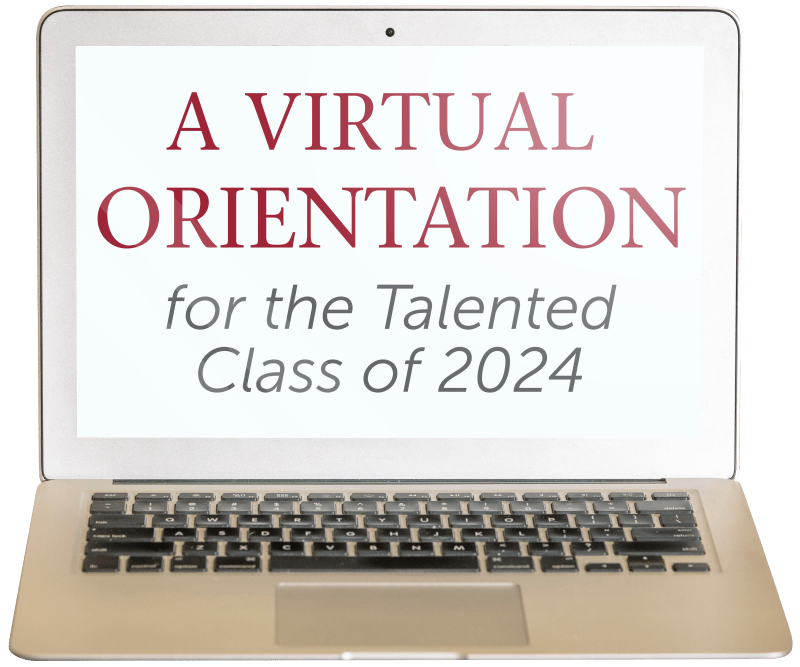Westmont Magazine
In a most unusual welcome to college, new students learned about Westmont’s academic programs and met faculty, staff and fellow students through a virtual Orientation. All students started their classes remotely August 31. Four weeks later, they returned to campus with county and state approval, and classes resumed with some meeting outdoors and in person and others continuing online.
Orientation featured Westmont’s Lunch and Learn Series, which included live video segments from the campus pastor, disability services, Intercultural Programs, and global education and off-campus programs, to name a few. More than 40 current students served as Orientation leaders, using Zoom and other virtual opportunities to help acquaint new students with the college. The Westmont community guide app detailed the virtual Orientation events, including a welcome session, small-group meetings, breakout sessions for student organizations and a kick-off for the first-year seminar.
Together, the students walked through this unique period of transition. “We’re beginners at dealing with a global pandemic or starting college with COVID-19 adaptations,” says Angela D’Amour, dean of student engagement. “It’s hard, awkward and frustrating. We may not like it, but we’re developing adaptability and a tolerance for ambiguity. These life skills will serve us well both now and later.”
Westmont’s class of 2024 is the most academically talented in the college’s history. It’s also among the most diverse with 39 percent of the 375 new and transfer students identifying as Hispanic, Asian American, African American, Hawaiian Pacific Islander, Native American, and/or multiracial. Twelve percent are the first in their family to attend college. The average SAT score skyrocketed 40 points to 1260 with a middle range of 1140-1380. The average GPA jumped significantly from 3.88 to 3.98.
Westmont awarded annual academic scholarships ranging from $6,000-$37,510 to more than 95 percent of the first-year students. These scholarships are renewable for the students for four years.
The class of 2024 includes 60 new Augustinian Scholars, a select group of students from around the world who competed for an academic leadership scholarship worth 85 percent of tuition, and 22 Augustinian and Presidential Fellows who will study with President Gayle Beebe as a part of an executive leadership student program.
The top five majors attracting new students include economics and business, biology, psychology, kinesiology and political science.
A record 57 new transfer students arrive from four-year schools from all over the world.
